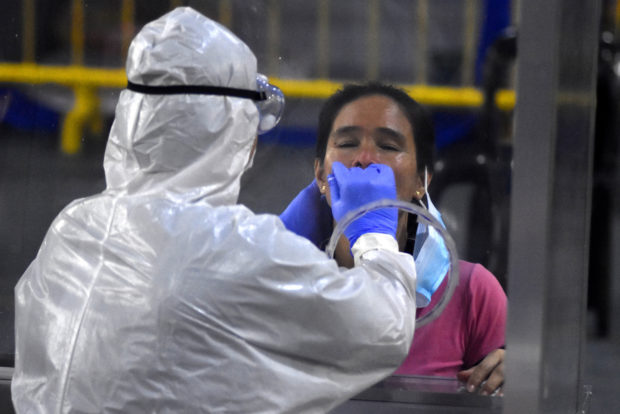MANILA, Philippines — The Department of Health (DOH) on Thursday clarified that only five, not six, individuals with travel history from India before a travel ban was imposed tested positive for COVID-19.
The DOH said the Bureau of Quarantine has recorded 149 passengers with recent travel history from India, composed of 129 returning overseas Filipinos and 20 foreign nationals.
The DOH said all 149 passengers were quarantined upon arrival and tested on the sixth or seventh day of their isolation.
“Among these cases, 5 tested positive for COVID-19 through RT PCR while 137 of them tested negative. Among those who tested positive, 1 is still in isolation while the disposition of the 4 patients are being verified,” the DOH said.
“Samples from these positive cases are currently being determined if they are adequate for sequencing,” the health department added.
Meanwhile, the DOH said it is still verifying the test results of seven other travelers and is coordinating with the concerned Regional Epidemiology and Surveillance Units to get updates on the health status of the travelers.
The Philippines started implementing a travel ban from India on April 29 amid the surge of COVID-19 cases there and as experts raise concern over the B.1.617 variant of the SARS-CoV-2 virus found in the South Asian country.
The travel ban will end on May 14.
The B.1.617 variant has not yet been detected in the Philippines. Currently, the country has already reported a total of 1,075 B.1351 variant cases (first detected in South Africa), 948 B.1.1.7 variant cases (first detected in UK), 157 P.3 variant cases (first detected in the Philippines), and 2 P.1 variant cases (first detected in Brazil) as of May 3.
“However, the detection of these variants of concern (VOCs) and variants under investigation (VUIs) does not mean that these variants are now the dominant variants in the country,” the DOH said.
The DOH explained that more variants of concern (VOC) and variants under investigation (VUI) are being detected in the country due to increased genomic biosurveillance activities.
The DOH reiterated that it is conducting a “purposive sampling” to ensure a higher likelihood of detecting the variants, which means that more samples are taken from areas, clusters, and groups of people that are likely to have these VOCs and VUIs.
“Hence, there is a disproportionately higher number of samples being sequenced from areas with reported clustering, increased severe and critical cases, and a bigger presence of returning overseas Filipinos,” the health department said.
